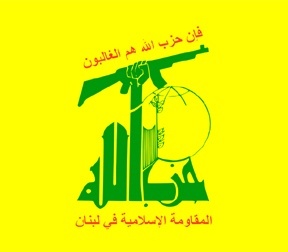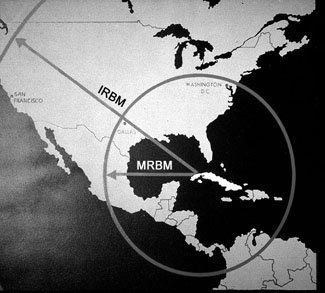FORECAST
Iraqi Prime Minister Nouri Al-Maliki’s declaration that ninety percent of Iraq’s terrorists enter the country by way of the Syrian border epitomizes his presumed re-election strategy for January polls: blame foreigners.
In an earlier article that appeared on Geopoliticalmonitor.com, the possibility was raised that bombings are turning into political currency in Iraqi domestic politics. While the ringleader behind the August 19th attacks remains a suspicious question mark, the attacks have certainly achieved their presumed aim of blighting the electoral outlook for Nouri Al-Maliki’s Dawa party.
To counter growing perceptions that his government is losing control of the security situation in Iraq, Prime Minister Al-Maliki has labeled the Syrian government as complicit in the August bombings by virtue of their refusal to extradite certain suspects. The move seems aimed at deflecting blame away from Nouri Al-Maliki’s government and towards Damascus. Baghdad has since recalled their ambassador to Syria and increased troop levels along the Iraq-Syria border, an order that reportedly originated from the Prime Minister himself.
Al-Maliki’s willingness to escalate the political rift could make for a volatile situation moving forward. His Dawa party has been excluded from a powerful Shiite coalition, the National Iraqi Alliance, for January elections. This means that Al-Maliki and his party are going to be primarily judged on their time in government, a record that can easily be smeared by the re-emergence of widespread violence.
In antagonizing Syria, Iraq is surely going to pay in lost economic and political opportunities for cooperation. Mere days before the August bombing, Prime Minister Al-Maliki was in Syria signing a series of bilateral deals. Now, these deals along with other projects such as repairing the Kirkuk-Banias oil pipeline are all floating in limbo.
While it is only possible to speculate on whether Al-Maliki’s accusations hold any water, Syria does have a potential motive for meddling in Iraqi affairs. Damascus might be adopting a ‘hands off’ approach towards Islamic militants and former Ba’athists within Syria in an effort to gain levers of influence in Iraqi politics. Major regional players are all very tentative about how Iraq will fit into the regional balance of power after the withdrawal of U.S. forces. Iran is well-placed to influence Iraqi politics through the Shiite connection. It is possible that Syria is fishing for a proxy of its own.
Regardless of Syria’s intent, the border represents a logistical challenge in the same vein as the Afghan-Pakistan militant nexus. Expect mutual animosity between Iraq and Syria to breed more violence such as Monday’s car bomb attack in the Syria-bordering Anbar province.
It will take a high-profile gesture of contrition on the part of the Iraqis to normalize relations with Syria. Whereas the Iraqi government has made normalization contingent on Syria’s handing over of several terrorist suspects, officials in Damascus have stressed that the Iraqi ambassador will not be invited back in the near future. Damascus can now play hardball in the hope that a functional Syrian-Iraqi relationship might be worth the U.S. adopting a sympathetic tone in any future Syrian-Israeli negotiations over the Golan Heights.
Ultimately, smooth bilateral cooperation is more important to Iraq than Syria. The economic benefits that Syria stands to lose because of the rift pale in importance to the political de-stabilization that Iraq risks if Damascus becomes an active player in Iraqi proxy war.
The true extent of the diplomatic fallout will not be known until after January elections. It is most likely that any new Iraqi government will be quick to wash its hands of the spat and jump through any of the hoops required to pull Damascus back on side. However, if Syria responds to Iraqi troop deployments along the border in turn, the situation risks developing into a real crisis.
SUMMARY OF EVENTS: August 31 – September 7, 2009
NORTH AMERICA
Canada
Canada’s main opposition Liberal Party on Tuesday vowed to bring down the minority Conservative government, leaving the fate of Prime Minister Stephen Harper in the hands of other parties.
United States
A U.S.-based medical rights advocacy group on Monday blasted health experts for playing a “central role” in advising and implementing the CIA’s abusive interrogation techniques used on terrorism suspects.
U.S. military authorities in Afghanistan have terminated a contract with a company that was producing profiles of reporters seeking to cover a war that’s becoming increasingly unpopular with the American public.
U.S. officials are planning to add as many as 14,000 combat troops to the American force in Afghanistan by sending home support units and replacing them with “trigger-pullers,” Defense officials said Wednesday.
WESTERN EUROPE
Britain
The British government has denied that the release of Abdel Basset Ali Mohmet al-Megrahi, the convicted Lockerbie bomber, had any connection to trade ties with Libya.
British Prime Minister Gordon Brown said on Wednesday that his government had put no pressure on Scotland to release the dying Lockerbie bomber early to improve Britain’s trade links with Libya.
Switzerland
Wegelin & Co., Switzerland’s oldest bank, is telling wealthy clients to sell their U.S. assets, or switch banks, because of concerns new rules will saddle investors with tax obligations in the world’s biggest economy.
EASTERN EUROPE
Russia
The Russian Foreign Ministry said on Thursday Georgia’s attempts to seize ships off the Abkhazian coast could lead to new armed conflicts.
MIDDLE EAST
Iran
The head of the United Nations nuclear watchdog has said that the international threat from Iran’s controversial nuclear program has been exaggerated.
Iraq/Syria
Iraq’s Prime Minister Nouri Al Maliki challenged Syria Thursday to explain why it shelters armed groups that Iraq blames for staging bombings in its territory.
Turkey
Turkey on Monday started mediation attempt as it tries to ease the recently erupted tension between Iraq and Syria over insurgency bombings in Iraq.
EAST ASIA
China
The Chinese city of Urumqi was under lockdown after tens of thousands of protesters took to the streets Thursday over mysterious syringe attacks in the capital of restive Xinjiang region.
North Korea
North Korea is in the final stages of enriching uranium, the country’s state media said Thursday, a process that could give it a second way to make nuclear bombs.
SOUTH ASIA
Afghanistan
Allegations of election fraud in Afghanistan soared on Monday ahead of the release of a fourth tranche of results from presidential polls in which incumbent Hamid Karzai is apparently cruising towards victory.
An audacious Taliban suicide attack on Wednesday killed Afghanistan’s deputy head of intelligence and 23 other people outside a mosque in a usually peaceful part of the country.
Sri Lanka
A top UN investigator has called for a full international investigation into whether Sri Lankan soldiers killed captured and unarmed Tamil rebels in violation of international law.
AFRICA
Gabon
Security forces deployed in Gabon’s capital Monday as all three main candidates in the oil-rich country’s presidential poll claimed victory in the race to succeed Africa’s longest-ruling leader.
Gabonese authorities imposed a curfew on Gabonese oil hub Port Gentil late on Thursday to counter violence sparked by the announcement that ruling party candidate Ali Ben Bongo had won Sunday’s presidential election.
Zachary Fillingham is a contributor to Geopoliticalmonitor.com



